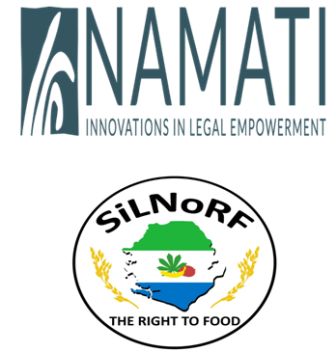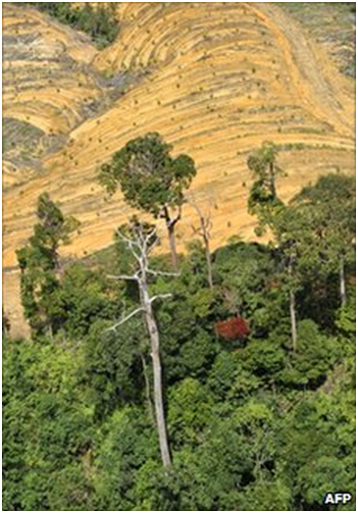Masethele Village in important land renegotiation with Addax Bioenergy Sierra Leone Limited
Freetown, Sierra Leone, March 13, 2013— As the country celebrated International Women’s Day on 8 March with a public holiday and speeches, a small village in the north of Sierra Leone was taking matters into its hands and re-defining its relationship with its most valuable resource – land. With support from Namati, a legal empowerment organisation and the Sierra Leone Network on the Right to Food (SiLNoRF) representatives of land-owning families of Masethele and officers of Addax Bioenergy Company signed an acknowledgement agreement at a lively community meeting bringing to an end an uneasy stand-off of more than two years between the community and the company.
In 2009 local newspapers reported a 200 million euros bioenergy investment project for Sierra Leone by Swiss-based energy corporation Addax & Oryx Group (AOG) through a local subsidiary Addax Bioenergy Sierra Leone Limited. The project was going to require about 24,700 acres of land on which sugar cane would be cultivated and converted to ethanol for export into the European Union.
Addax Bioenergy in May 2010 signed 50 year lease agreements with 3 chiefdom councils – Makari Gbanti, Bombali Sebora and Malal Mara acquiring approximately 58,000 acres of land for its sugar cane project more than double the amount first stated. The rent per acre was fixed at US$ 3.60. A draft of the lease had earlier been criticised by civil society organisations as heavily weighted in favour of Addax but those concerns were not addressed in the final lease by the company. Masethele which is part of Malal Mara chiefdom saw its entire land space of 2796 acres leased out to Addax by the chiefdom council.
Subsequent to the lease agreements and in a bid to make them more palatable to communities, Addax executed ‘acknowledgement agreements’ directly with representatives of land–owning families. Under these agreements, Addax paid an additional US$ 1.40 per acre to land-owners who acknowledged Addax’s lease under the 50 years lease agreements signed with the chiefdom councils.
The small village of Masethele refused to acknowledge Addax’s lease of their land as they were dissatisfied with both the substance of the lease and the lack of proper consultations prior to its finalisation. In particular the people were unwilling to sign over to Addax their entire land space and remained resolute even when pressure was applied from above. The community also refused to accept its allotted share of the rent paid by Addax to the chiefdom council. According to one inhabitant, “the council should have asked us if we wanted to lease our entire village to Addax, but they didn’t and we actually don’t want to give all our land to Addax”.
Addax’s insistence on its right to the entire village under the lease agreement and the community’s resolve to retain possession of their land led to an impasse which lasted over 2 years. In late 2012 however, Namati with support from SiLNoRF began representing Masethele in negotiations with Addax over an acceptable compromise for both sides. At the end, both sides agreed that the community would acknowledge Addax’s leasehold title over 626 acres on which sugarcane would be cultivated instead of the 2796 acres which comprised the entire village. The inhabitants would retain their title to the remaining land and Addax would pay rent and other proceeds only for the land under cultivation.
The signing of the agreement which took place in Masethele amidst singing and drumming was the first time the company had signed an acknowledgement agreement for an area smaller than what was leased to them by the chiefdom councils. Throughout this process, Addax displayed a willingness to constructively engage with communities and civil society that was absent when it started operations in Sierra Leone. This new spirit of collaboration to resolve differences represents an opportunity for constructive dialogue between communities and the company. It will be particularly needed to address the anomalies of the leases, the leasing process and important social and environmental obligations of the company. Already many villages across the 3 chiefdoms have expressed dissatisfaction with the leases and have called for an urgent review of their provisions. Namati and SiLNoRF remain committed to supporting communities to protect their land rights and obtain fair terms from corporations seeking to invest in land in Sierra Leone.
By Sonkita Conteh, Namati, Freetown
Namati implements innovative legal empowerment interventions in partnership with governments and civil society organizations in several countries including Sierra Leone.
The Sierra Leone Network on the Right to Food (SiLNoRF) a network of Community Based Organisations, Civil Society Organisations and Local Non-Governmental Organisation working to increase awareness on the Right to Food in Sierra Leone in order to make it effective.
Stay with Sierra Express Media, for your trusted place in news!
© 2013, https:. All rights reserved.






